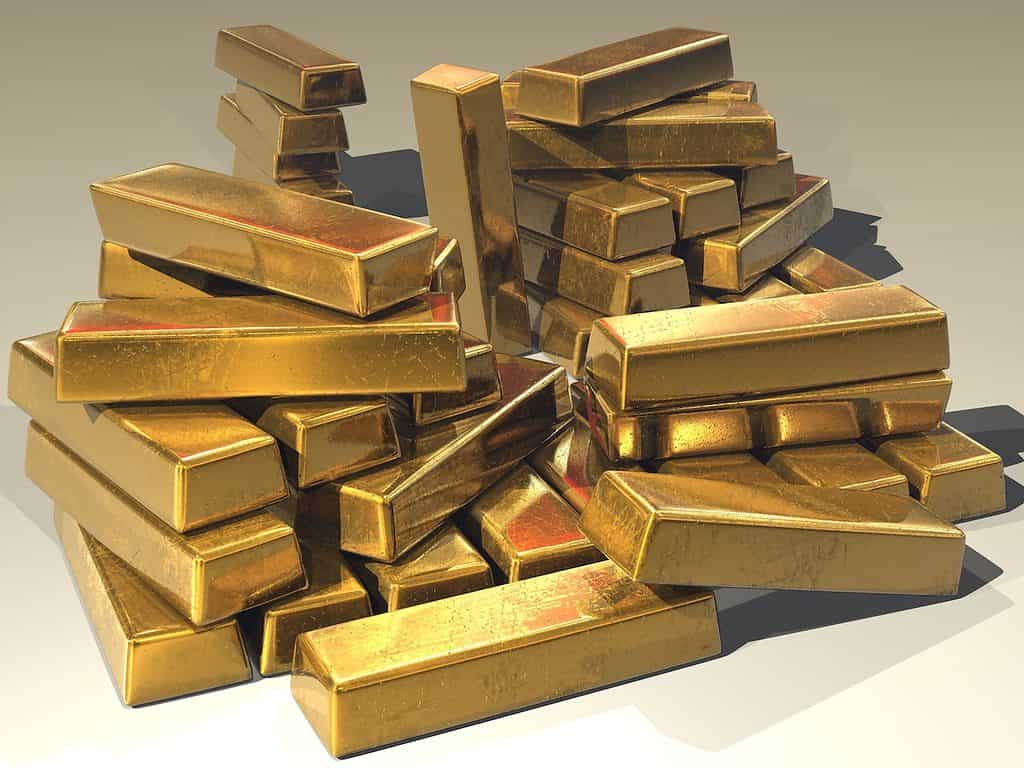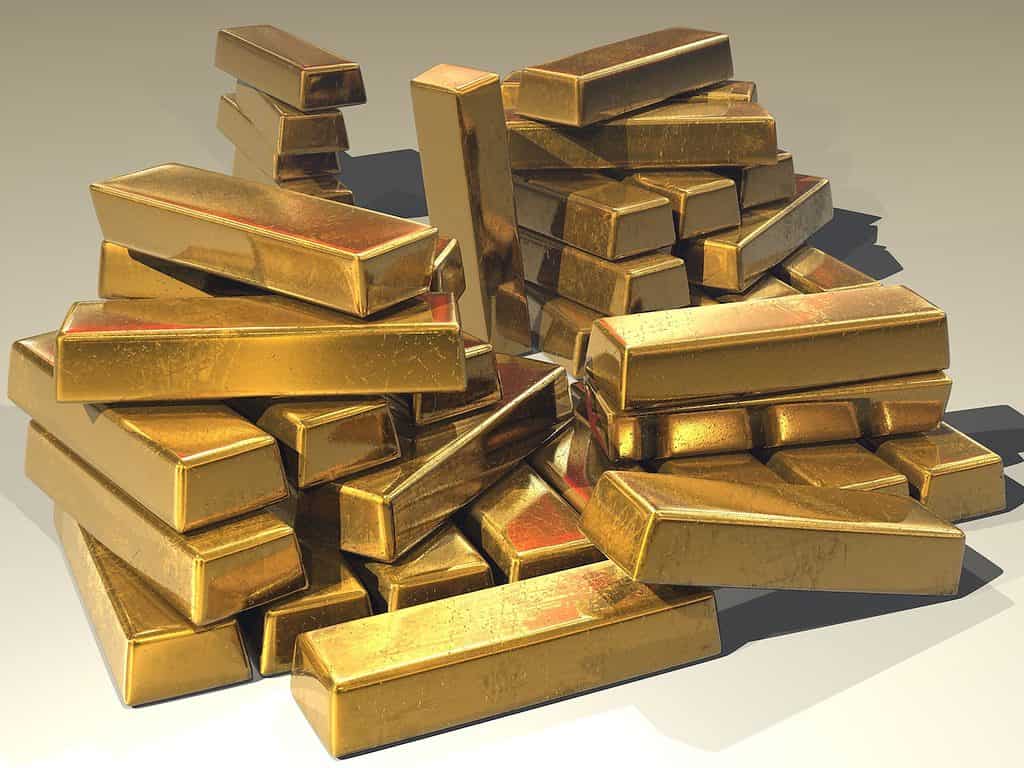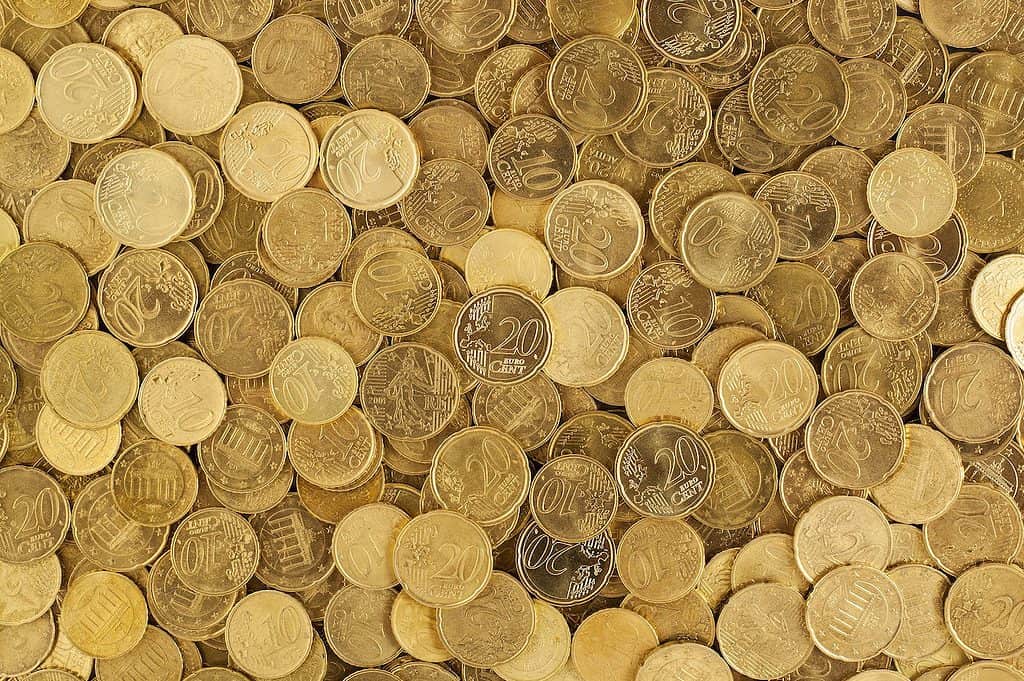Top 10 Best Paying Jobs in Precious Metals in 2024
Precious metals such as gold, silver, and platinum have been valued for centuries for their beauty, rarity, and durability. These valuable materials are used in various applications, from jewelry and coins to electronics and aerospace.
With the increasing demand for precious metals, the industry has grown, creating various job opportunities that pay well.
In this blog post, we will look at some of the best paying jobs in precious metals industry, including positions in mining, refining, and fabrication.
Whether you’re a recent graduate or an experienced professional, there’s a place for you in this exciting and lucrative field. From geologists to traders, we’ll explore the different roles available, what they involve, and the qualifications and skills needed to land one of these high-paying jobs.
What are Precious Metals?

Precious metals are a class of metals that are considered rare and have a high economic value. They are typically more durable and have a higher melting point than other metals. The most well-known precious metals are gold, silver, and platinum.
However, other metals such as palladium, rhodium, and ruthenium also fall into this category. They’re widely used in jewelry, bullion coin, and other industrial application. They also have strong demand as an investment; they are often considered a store of value or hedge against currency or economic inflation.
What Makes Precious Metals So Valuable?
Precious metals are considered valuable for a variety of reasons. One of the most important factors is their scarcity. These metals are relatively rare in the Earth’s crust, which makes them more valuable than more abundant metals like copper or aluminum. Additionally, precious metals are durable and don’t corrode, which means they can maintain their value for centuries.
Another factor that contributes to the value of precious metals is their use in a wide range of industries. They are often used in the manufacturing of jewelry and coins, as well as in electronic devices, medical equipment, and aerospace technology. The demand for these uses of precious metals helps to drive up their price.
Precious metals also have historical and cultural significance, which adds to their value. They have been used as a store of wealth and a medium of exchange for centuries, and they continue to be viewed as a symbol of wealth and status.
Finally, precious metals are a relatively safe and stable investment, which makes them appealing to investors. They tend to hold their value well during times of economic uncertainty, which makes them a safe haven asset, and they act as a hedge against inflation.
Overall, Precious metals are valued for their scarcity, durability uses in various industrial and cultural significance, as well as their potential as an investment vehicle.
Should You Work In The Precious Metals Industry?
Whether or not you should work in the precious metals industry depends on your interests, skills, and career goals. If you’re passionate about geology and the earth sciences or are interested in the latest advances in technology and manufacturing, then a career in the precious metals industry could be a great fit for you.
The precious metals industry offers a variety of job opportunities, including roles in mining, refining, and fabrication. If you’re interested in working in the mining and exploration of precious metals, then you may want to pursue a career as a geologist, mining engineer, or surveyor. If you’re more interested in the manufacturing and processing side of the industry, then you may want to consider roles such as metallurgist, chemist, or process engineer.
To work in the precious metals industry, you will typically need a degree in a relevant field, such as geology, mining engineering, metallurgy, or chemistry. Some positions may also require additional certifications or licensure. Strong problem-solving and analytical skills, as well as attention to detail, are also important.
It’s also worth considering that the mining industry can have a significant impact on the environment, and regulations can be strict, so it’s important to be aware of that and familiar with the environmental regulations that apply to mining operations.
The Precious metals industry can be a rewarding and challenging field that offers competitive pay, opportunities for advancement, and the chance to work on exciting projects. However, it may not be the right choice for everyone. It’s worth researching and exploring the different career options within the industry to determine if it’s the right fit for you.
High Pay
Many jobs in the precious metals industry offer competitive pay. According to data from the U.S. Bureau of Labor Statistics (BLS), many jobs in the industry have median annual wages that are well above the national median.
For example, mining and geological engineers, who are responsible for designing and managing the mining process, have a median annual wage of $92,250. Metallurgical engineers, who are involved in the processing of metals and the development of new metal products, have a median annual wage of $87,040.
Jobs that involve management and leadership can also be well-paying. For example, mining and quarrying managers have a median annual wage of $131,180 and operations managers in mining, quarrying, and oil and gas extraction have a median annual wage of $150,430.
It’s worth noting that the salary can vary depending on location, company size, and experience; for example, larger companies may pay more than smaller ones. Additionally, the salary for higher-level management positions can be even higher.
In summary, many jobs in the precious metals industry offer high pay and the potential for good earnings. It is a combination of both the skills and qualifications that are required for the job and the type of job itself as well as the industry standards.
Is Precious Metals A Good Career Path?

A career in the precious metals industry can be a rewarding and challenging path, with many opportunities for growth and development. The industry offers a wide range of job opportunities, from mining and exploration to refining and fabrication, which can appeal to a variety of interests and skillsets.
Working in the precious metals industry can be a good career choice if you’re interested in science, engineering, and technology, as many jobs in the industry require a background in these fields.
Additionally, if you’re looking for a career that can offer stability, the industry is relatively stable and not affected by economic fluctuations to the same extent as some other sectors. The constant need for precious metals for various industrial uses and for investment ensures a steady demand for the industry.
Another benefit of working in the precious metals industry is that it can offer high pay, especially for those in specialized or management positions. Many jobs in the industry have median annual wages that are well above the national median.
However, it’s worth noting that some jobs in the industry may require long hours and work in remote locations, which can be challenging for some individuals. Additionally, the industry is heavily regulated, and safety and environmental protocols must be followed at all times.
In summary, working in the precious metals industry can be a good career path for those who are interested in science, engineering, technology and are looking for a stable and well-paying job opportunity, and are comfortable with the conditions that may be involved in some jobs in the industry.
It is important to carefully research the different roles and opportunities in the industry to determine if it’s the right fit for you.
List of Best Paying Jobs in Precious Metals
1. Precious metals broker

A precious metals broker is a professional who buys and sells precious metals, such as gold, silver, platinum, and palladium, on behalf of clients. They typically work for a brokerage firm or bank and may specialize in trading one or more types of precious metals.
They are responsible for providing market analysis, making trades, and managing risk for their clients. This job can be very lucrative, as it often includes a base salary and a sales commission. However, it also comes with a high degree of risk, as the value of precious metals can be volatile.
To become a precious metals broker, you typically need a bachelor’s degree, pass the Series 7 and Series 63 or 66 securities exams, and have a few years of experience in the industry.
2. Precious metals consultant
A precious metals consultant is a professional who advises and guides clients on matters related to precious metals investments. They may work for a consulting firm, investment bank, or other financial institution and specialize in one or more types of precious metals.
They are responsible for providing market analysis, identifying investment opportunities, and making recommendations to clients.
This can include researching and analyzing market trends, understanding the economic and political factors that may impact the precious metals market, and monitoring the performance of various investment products.
They also help clients to develop a precious metals investment strategy that aligns with their goals and risk tolerance. To become a precious metals consultant, you typically need a bachelor’s degree in a related field, such as finance, economics, or business, and have a few years of experience in the industry.
3. Precious metals sales agent

A precious metals sales agent sells precious metals such as gold, silver, platinum, and palladium to individuals and businesses. They work for a precious metals dealership, mining company, refiner, or other precious metal-related business.
They are responsible for identifying potential customers, promoting the products and services of the company, and making sales. They also advise and guide clients on how to invest in precious metals and help them select the products that best suit their needs and budget.
They may also be responsible for tracking inventory and managing client relationships.
To become a precious metals sales agent, you typically need a high school diploma or equivalent and some experience in sales or customer service.
Some companies may prefer or require a bachelor’s degree in a related field such as finance, economics, or business. Sales agents usually receive on-the-job training and may also be required to pass industry-related exams or certifications.
4. Mining Engineer
Mining engineers are responsible for designing and planning the development of mines. They are involved in all aspects of mining operations, including identifying and evaluating potential mining sites, designing and implementing mining methods, and ensuring that the mining process is safe and environmentally sustainable.
They may also be involved in managing mining operations, including budgeting and scheduling.
The specific duties of a mining engineer can vary depending on the type of mining being done (e.g. surface mining or underground mining) as well as the specific minerals being extracted. Some of the tasks that a mining engineer may be responsible for include the following:
- Conducting geologic and geotechnical studies to determine the location, depth, and quality of mineral deposits
- Developing and implementing mining plans that take into account safety, environmental, and production factors
- Designing and overseeing the construction of mining infrastructure, such as tunnels, shafts, and conveyor systems
- Managing the production of mining operations and ensuring that they are efficient and cost-effective
- Monitoring and maintaining compliance with safety, environmental, and other regulations
Mining engineers typically need at least a bachelor’s degree in mining engineering or a related field, and some positions may require advanced degrees or certifications. They also need strong analytical and problem-solving skills and the ability to work well in a team.
5. Geologist

A geologist is a scientist who studies the Earth and its materials, processes, and history. In the precious metals industry, geologists play a critical role in identifying and evaluating mineral deposits, including gold ones.
They use various methods, such as geologic mapping, geophysical surveys, and drilling, to gather data about the subsurface geology of an area. They then use this information to determine the potential for mineral deposits, estimate the size and quality of the deposits, and develop a plan for extracting the minerals.
Geologists also play a role in the environmental management of mining operations. They assess the potential impacts of mining on the environment and develop strategies to minimize the negative impacts. They also monitor the ongoing environmental performance of the mines and help ensure they comply with environmental regulations.
The salary of a geologist can vary depending on factors such as location, experience, and the type of employer. According to the US Bureau of Labor Statistics, the median annual wage for geologists was $91,130 in May 2020.
However, geologists with experience in the precious metals industry, especially those working for large mining companies, can earn significantly more.
6. Goldsmith
A goldsmith is a skilled craftsman who works with gold and other precious metals to create jewelry, sculptures, and other decorative items. They may also work with other materials, such as gemstones and pearls.
Goldsmiths typically have a strong background in metalworking and design and may have completed formal training or apprenticeships.
Goldsmiths typically use various techniques such as casting, soldering, engraving, and setting stones. They often work in jewelry stores, manufacturing firms, or as independent artisans. They create one-of-a-kind pieces and may make custom jewelry to the client’s specifications.
The salary of a goldsmith can vary depending on factors such as location, experience, and the type of employer. According to the US Bureau of Labor Statistics, the median annual wage for jewelers and precious stone and metal workers was $38,890 in May 2020.
However, some goldsmiths who are successful and have a reputation for producing high-quality work can earn significantly more.
7. Precious metal worker

A precious metal worker is a craftsman who works with precious metals such as gold, silver, platinum, and palladium to create a wide range of items.
They may work in various settings, including jewelry stores, manufacturing firms, and independent studios. Some precious metal workers may specialize in a specific type of work, such as creating fine jewelry, while others may work on various projects.
Precious metal workers use various techniques to shape and finish the metal, including casting, forging, soldering, engraving, and setting stones. They may also work with other materials, such as gemstones, pearls, and enamel.
They use traditional hand tools and modern technology like CAD and 3D printing.
Like goldsmiths, the salary of a precious metal worker can vary depending on factors such as location, experience, and the type of employer.
According to the US Bureau of Labor Statistics, the median annual wage for jewelers and precious stone and metal workers was $38,890 in May 2020. However, some precious metal workers who are successful and have a reputation for producing high-quality work can earn significantly more.
8. Quality control specialist
A Quality Control (QC) specialist is responsible for ensuring that products meet specific quality standards before they are released to the market. In the precious metals industry, the QC specialist is responsible for checking the quality of the precious metal products before they are shipped to the customers.
This includes checking the purity of the metal, identifying any defects, and ensuring that the products meet the design specifications.
The QC specialist may use various tools and equipment to test the products, such as X-ray fluorescence spectrometry (XRF) and laser ablation inductively coupled plasma mass spectrometry (LA-ICP-MS). They may also use visual inspection, metallography, and other techniques to evaluate the quality of the products.
The salary of a Quality Control specialist can vary depending on factors such as location, experience, and the type of employer. According to the US Bureau of Labor Statistics, the median annual wage for Quality Control Inspectors was $38,250 in May 2020.
However, some QC specialists with experience in the precious metals industry and a reputation for producing high-quality work can earn significantly more.
9. Jewelry specialist
Jewelry specialist is one of the best paying jobs in precious metals. A jewelry specialist is a professional with expertise in designing, producing, and selling jewelry.
They may work in various settings, including jewelry stores, manufacturing firms, and independent studios. They may specialize in a specific type of jewelry, such as fine or fashion jewelry, or they may have a broad knowledge of different types of jewelry.
Jewellery specialists are responsible for creating new designs, selecting materials, and overseeing production. They may also be involved in the sales and marketing of the jewelry, such as creating product displays and advertising campaigns.
They need to know different types of precious metals, gemstones, and other materials used in jewelry making, as well as understand fashion trends and consumer preferences.
The salary of a jewelry specialist can vary depending on factors such as location, experience, and the type of employer. According to the US Bureau of Labor Statistics, the median annual wage for jewelers and precious stone and metal workers was $38,890 in May 2020.
However, some jewelry specialists who have experience in the industry, have a good reputation, and have the ability to create unique designs can earn significantly more.
10. Gold Miners

Gold miners are individuals or companies that extract Gold from the earth through mining. This process typically involves locating gold deposits, extracting the ore (rock containing Gold), and processing it to remove it.
Gold mining can be done through various methods, including open-pit mining, underground mining, placer mining, and panning.
Gold miners work in remote locations and may be required to operate heavy machineries such as excavators and haul trucks. They must also follow strict safety regulations and environmental laws to protect the workers and the surrounding area.
The salary of a gold miner can vary depending on factors such as location, experience, and the type of employer. According to the US Bureau of Labor Statistics, the median annual wage for mining and geological engineers, including mining safety engineers, was $89,720 in May 2020.
However, the salary for the workers on the mining site, such as drillers, excavator operators, etc., can be lower.
It’s worth mentioning that Gold mining is a capital-intensive industry and requires significant investment in equipment and infrastructure. The profitability of a gold mine is highly dependent on the price of Gold and can be affected by factors such as changes in mining regulations and environmental concerns.
Final Thoughts on Best Paying Jobs in Precious Metals
So, you don’t need to wonder about how many jobs are available in precious metals industry. The precious metals industry offers a variety of job opportunities with different levels of education, skills, and experience.
The best paying jobs in precious metals industry include mining engineers, gold traders, and precious metal refiners, which tend to have high salaries due to the specialized skills and knowledge required.
Other well-paying jobs in the precious metals industry include goldsmiths, precious metal workers, quality control specialists, and jewelry specialists, who are responsible for creating and selling high-quality precious metal products.
These jobs require technical skills, artistic ability, and knowledge of the latest trends and consumer preferences.
Additionally, in the mining industry, workers’ salary on the mining site is relatively lower than those of mining engineers and gold traders. However, it still can be considered a well-paying job.
Read Further on Our Blog





